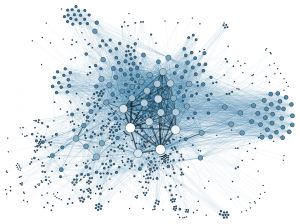Every device attached to the Internet has its own Internet address. Or at least that’s the theory. In fact, of course, a moment’s reflection says it can’t be true. Take the simple wireless network in a home. Assume that, for the sake of argument, there are three computers attached to it. One of those computers will have its own address but the other two will have variants of that address and will connect to the Net through a network address translator (NAT/PAT) gateway. This, in its simplest form, is a private network – a network that uses private IP address spaces for each device other than the one providing the gateway. Standards for this kind of addressing are laid down under Internet Protocol Version 4 (IPv4) and Version 6 (IPv6).
Home network such as the one described together with office networks and enterprise local area networks (LANs) are the normal users of such networking methods. There is, however, another form of private link network and it is one that has caused the search engines no little trouble.
Private Link Networks have been and are used by many SEO companies to increase the number of backlinks, thus boosting the ranking of the page in search engines results. (They may also be called Private Blog Networks (PBNs)). The big search engines regard this as unfair practice – a way of giving a page a higher ranking than it really should have – and have been seeking out and delisting networks of this sort wherever they could find them.
This search started not with Private but with Public Link Networks, which openly advertised what they did and sold subscriptions on the basis that backlinks from a series of devices, each of which had its own IP address, would be a better boost to a site’s ranking than the same number of backlinks from IP addresses linked so closely that they could easily be identified by the search engines and discounted. The process of finding and closing down Public Networks began in 2013 and was completed fairly quickly.
Hence the rise of the Private Link Network, which is more difficult for search engines to distinguish from legitimate networks. If eight people, each of whom has a PC attached to their employer’s network, separately and independently give a high rating to a website selling, let us say, recording equipment, is the owner of the selling website doing anything wrong? The answer would have to be no. But how is a search engine to tell the difference between that situation and one where eight high ratings have been given to a single website by devices configured purely for that purpose and intended to boost the ranking of any Webmaster prepared to pay for the service?
The fact that search engines have that difficulty does not mean that they will give up and the big search companies are becoming more inventive in their ways to identify owners of Private Link Networks seeking to distort the system for money. Recent history suggests that SEO experts have the ingenuity to continue to find ways to defeat the search engines’ efforts to close them down. Anyone looking for ranking improvement should assume that Private Link Networks are far from dead.